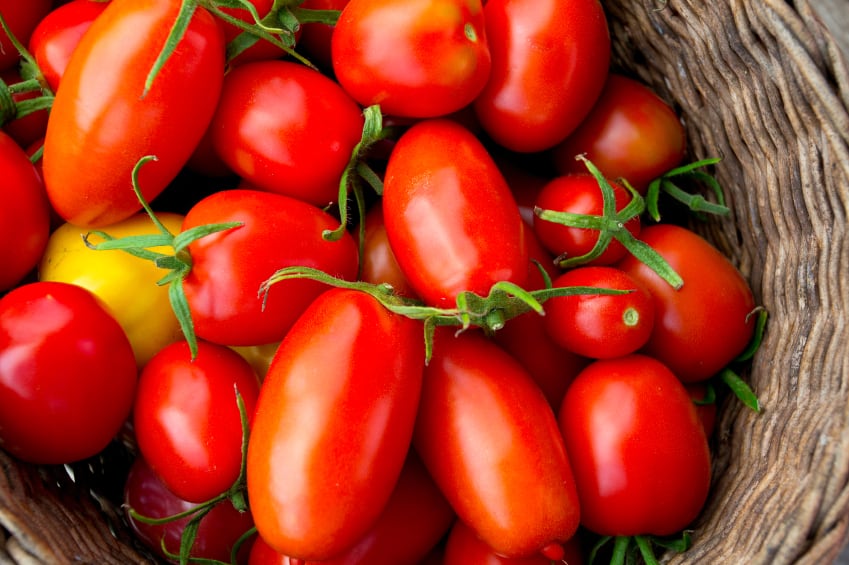The findings, outlined in a Japanese study, points to tomato juice as a practical, affordable and readily available nutritional intervention to prevent CVDs in people at risk.
“To the best of our knowledge, the current study is the first to investigate the effects of tomato or tomato product intake on cardiovascular disease risk markers over the course of a year and over a wide age range,” the authors wrote.
“Our study shows that unsalted tomato juice intake could have improved systolic and diastolic blood pressure in Japanese residents who had untreated prehypertension or hypertension, and also decreased the serum LDL‐C level in those who had untreated dyslipidaemia.
Despite tomatoes’ array of bioactive compounds, the mechanisms of action on the cardiovascular system is still poorly understood.
Lycopene is perhaps the most well-known, not only for its strong antioxidant activity but also the inhibition of LDL oxidation, which plays a key role in the initiation and development of atherosclerosis.
Esculeoside A, a tomato saponin, is also a bioactive put forward as a potent protector against the effects of dyslipidaemia and atherosclerosis development.
Other beneficial compounds identified in tomatoes include peroxisome proliferator‐activated receptors (PPARs), which are implicated in antioxidant action that leads to improvement blood pressure control and cardiac function.
Study details
The study, which received financial support from The Kikkoman Corporation, began enrolling 184 male and 297 female participants, who were given unlimited unsalted tomato juice throughout one year.
At the end of the study, blood pressure in 94 participants with untreated prehypertension or hypertension dropped significantly.
Systolic blood pressure (SBP) lowered from an average of 141.2 to 137.0 mmHg, and diastolic blood pressure (DBP) lowered from an average of 83.3 to 80.9 mmHg.
LDL cholesterol levels in 125 participants with high cholesterol decreased from an average of 155.0 to 149.9 milligrams per decilitre (mg/dL). These beneficial effects were similar among men and women and among different age groups.
“Our study showed the beneficial effects of unsalted tomato juice intake on SBP, DBP, and LDL‐C; thus, our findings may support these reports of the beneficial properties of lycopene,” the team said, who were based at the Tokyo Medical and Dental University in Japan.
“The regulation of energy metabolism, oxidative stress, and the inflammatory response by activation of PPARα is expected to lead to the prevention of atherosclerosis and CVDs.
“In our study, oxo‐ODAs in tomato juice could have contributed to the ameliorative effects on the serum LDL‐C level and blood pressure.”
Study limitations
The study did have some limitation, namely the consumption of roughly one bottle of tomato juice (200 ml) every day by the study participants.
The team said they were unable to evaluate whether the effects of tomato juice on CVD risk markers depended on the level of consumption.
In addition, the detailed information of the diet each participant followed during the study period was lacking.
The team comment on this limitation saying they did not assess the intake of other juices and nutritional supplements.
Finally, the study on lifestyle factors was conducted in only about half of the participants – a factor that may have contributed to the results, which may not be applicable to the whole study population.
A source of criticism was the analysis performed by the UK’s NHS website, which stated the study’s limitations meant reliable conclusions from the results were not possible.
“First, this was not a randomised controlled trial. The lack of a balanced comparison group means we cannot tell whether tomato juice had any effect on people's blood pressure or cholesterol.
If people had higher blood pressure or cholesterol they might have started to receive medical treatment or changed their diet in other ways.
The improved measurements at the end of the study may have had nothing to do with tomato juice.
The overall results found no effect of tomato juice. The researchers found an effect when looking at a sub-group of participants. But we do not know whether they originally planned to look at this sub-group, or whether when examining the results deeper they found this positive effect, and included it in the report. This type of "post-hoc" analysis is not so reliable.”
Source: Food Science and Nutrition
Published online: doi.org/10.1002/fsn3.1066
“Unsalted tomato juice intake improves blood pressure and serum low‐density lipoprotein cholesterol level in local Japanese residents at risk of cardiovascular disease.”
Authors: Tamami Odai Masakazu Terauchi Daisaku Okamoto Asuka Hirose Naoyuki Miyasaka


